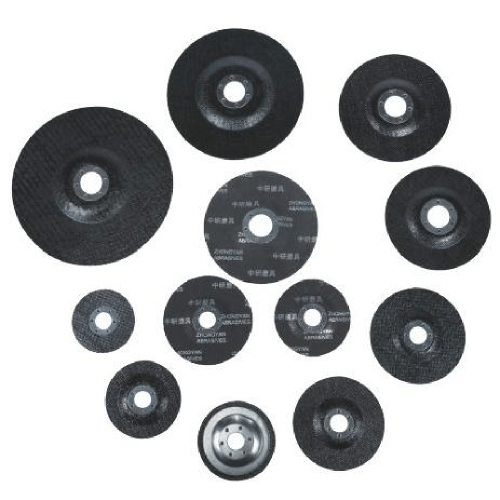Understanding the Evolution of Modern Power Equipment
The landscape of electric tools has transformed dramatically over the past decades, revolutionizing how professionals and DIY enthusiasts approach their projects. From humble beginnings with simple corded drills to today's advanced battery-powered systems, these essential implements continue to shape the construction and home improvement industries. The choice between cordless and corded electric tools represents more than just a preference—it's a decision that impacts workflow, efficiency, and project outcomes.
Modern workshops and construction sites buzz with the sound of various electric tools, each serving specific purposes while offering distinct advantages. The ongoing debate between cordless freedom and corded reliability remains at the forefront of tool selection discussions, influencing purchasing decisions for both professionals and hobbyists alike.
The Power and Reliability of Corded Electric Tools
Consistent Performance and Unlimited Runtime
Corded electric tools have long been the backbone of construction and woodworking operations. Their direct connection to power outlets ensures unwavering performance throughout extended use. This consistent power delivery makes them particularly suitable for heavy-duty applications where maximum torque and sustained operation are crucial. Whether you're cutting through thick hardwood or drilling into concrete, corded tools maintain their power output without fluctuation.
The unlimited runtime offered by corded models eliminates the need to monitor battery levels or plan work sessions around charging schedules. This reliability proves invaluable during time-sensitive projects or when working on large-scale operations where interruptions could impact productivity.
Cost-Effectiveness and Longevity
Initial investment in corded electric tools typically runs lower than their cordless counterparts. The absence of expensive battery systems and charging equipment reduces both upfront costs and long-term maintenance expenses. These tools often demonstrate remarkable durability, with many professional-grade models lasting decades when properly maintained.
The simplicity of corded tools' internal mechanisms contributes to their longevity. With fewer components that could potentially fail, repair costs remain minimal throughout their service life. This cost-effectiveness makes them particularly attractive for workshops and construction companies operating on tight budgets.

The Freedom of Cordless Innovation
Mobility and Versatility in Application
Cordless electric tools represent the pinnacle of portable power technology. Their untethered nature enables users to work in locations where power outlets are unavailable or impractical to access. This mobility proves invaluable when working on roofs, in crawl spaces, or at remote job sites. The freedom to move without managing cord length or finding power sources significantly enhances workflow efficiency.
Modern lithium-ion batteries have dramatically improved the capability of cordless tools, offering increased power density and longer runtime between charges. These advancements have made cordless options viable for increasingly demanding applications, narrowing the performance gap with their corded counterparts.
Advanced Features and Technology Integration
Contemporary cordless electric tools often incorporate cutting-edge features that enhance user experience and productivity. Smart battery management systems protect against overheating and optimize power consumption. Brushless motors improve efficiency and extend tool lifespan, while integrated LED lights illuminate work areas in low-light conditions.
The development of universal battery platforms allows users to power multiple tools with interchangeable batteries, reducing overall investment in power sources. This ecosystem approach has transformed how professionals and hobbyists alike build their tool collections, offering unprecedented flexibility and convenience.
Making the Right Choice for Your Needs
Professional Considerations and Workflow Analysis
Selecting between corded and cordless electric tools requires careful evaluation of work requirements and environmental conditions. Professional contractors often maintain both types, using corded tools for workshop-based operations and cordless options for field work. Understanding the nature of typical projects, power requirements, and workspace constraints helps inform optimal tool selection.
The frequency and duration of tool use significantly influence the choice. High-volume production environments might benefit from corded tools' consistent power, while mobile service providers could find cordless flexibility indispensable. Consider the potential impact on productivity and the hidden costs of power management when making this decision.
Environmental and Safety Factors
Working conditions play a crucial role in tool selection. Outdoor environments with exposure to moisture might favor cordless tools, reducing electrical hazards. Similarly, crowded workspaces where cord management could create tripping hazards often benefit from cordless alternatives. The absence of trailing cords can significantly enhance workplace safety and reduce accident risks.
Temperature extremes and environmental conditions affect battery performance in cordless tools, while corded options remain largely unaffected. These factors deserve consideration when tools will be used in challenging climates or outdoor settings.
Frequently Asked Questions
How long do cordless tool batteries typically last?
Modern lithium-ion batteries used in quality electric tools typically provide 2-5 years of service with proper care and maintenance. However, actual lifespan varies based on usage patterns, charging habits, and storage conditions. Professional users might need replacement batteries sooner due to higher usage intensity.
Can cordless tools match the power of corded versions?
High-end cordless electric tools now approach or match the power output of comparable corded models, especially in short-duration applications. However, sustained heavy-duty use might still favor corded tools for their consistent power delivery and unlimited runtime.
What should I consider when investing in a new tool system?
Consider your typical projects, working environment, and budget constraints. Evaluate the manufacturer's battery platform compatibility if choosing cordless tools. For corded options, assess power requirements and outlet availability in your usual work areas. Factor in long-term costs including potential battery replacements for cordless systems versus the simplicity of corded tools.


